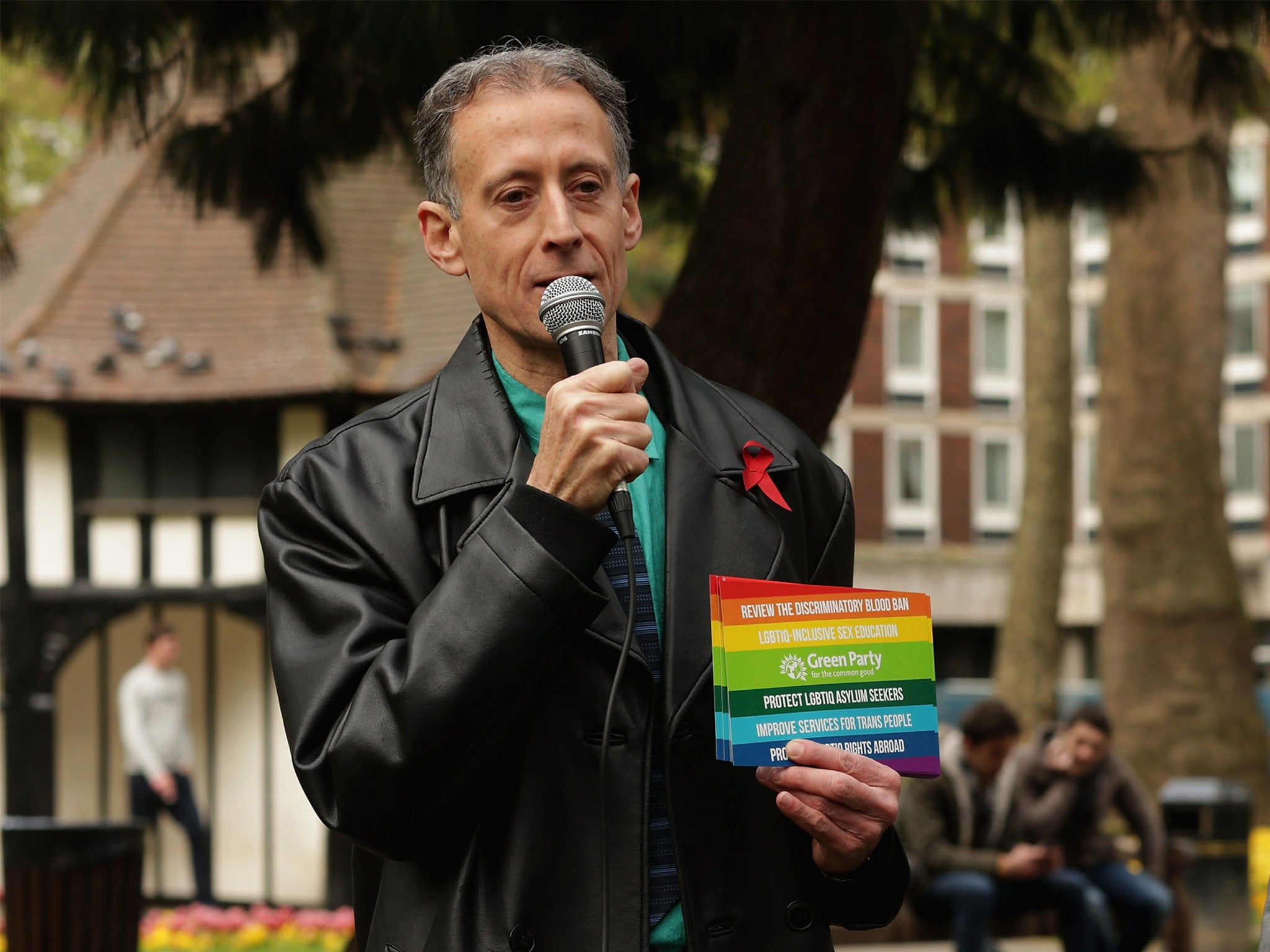NUS 'no platform' policy goes 'too far' and threatens free speech, Peter Tatchell warns
Nearly two-thirds of university students believe their unions are right to have 'no platforming' policies, new survey suggests

Students have gone "too far" by continually oppressing free speech with university "safe space" policies, a leading human rights campaigner has said.
Nearly two-thirds of UK university students said they believe the National Union of Students (NUS) is right to enforce its controversial "no plaform" policy, whereby individuals or groups with opinions deemed to be offensive can be banned from speaking on student union premises.
The policy has sparked controversy, with campaigners branding it an assault on free speech.
"Just because a majority of students support a policy does not make it right," human rights campaigner Peter Tatchell said. "Democracy does not include the right to vote away the free speech and human rights of others."
A BBC survey revealed that along with 63 per cent of UK university students being in favour of the NUS policy. More than half the number of students also thought the policy should be actively enforced against people who could be found intimidating.
“No-platform” policies have increasingly become the subject of fraught debate over the past few months, with a host of high-profile speakers including feminist writer Germaine Greer and human rights activist Maryam Namazie asked not to appear at student events for fear that their opinions would be upsetting to some students.
Appearing on the Victoria Derbyshire programme on BBC, Mr Tatchell said the current “no-platforming” policy held by the NUS was a dangerous threat to free speech within learning institutions.
“All bigots should be protested,” he said. “I don’t think people with offensive views should be given a free pass. They should be challenged. The best way to do this is by open debate to refute their intolerance. If you censor of ban them, the ideas just get suppressed. They don't cease to exist and they cannot be effectively countered."
Chief Executive for HOPE not Hate, Nick Lowles, was reportedly “no-platformed” by the NUS in February on the grounds that he was seen to be “Islamaphobic”. The anti-racism and fascism campaigner responded on social media that the NUS had “officially become a joke” after “ultra-left lunacy” stopped him from speaking at the anti-racism conference.
Most recently, King’s College London revoked a speaking invitation extended to the Mayor of London, Boris Johnson, after he made “inappropriate” remarks about President Barack Obama’s ancestry.
Referring to the increasing number of activists blocked by student unions, Mr Tatchell said during the BBC debate: “The intention behind 'no platform' and 'safe space' policies is often honourable and commendable, to protect weak and vulnerable students. But the way they are being widely interpreted has gone too far.”
“To treat a left-wing speaker[s] in this way is not left-wing politics. It is McCarthyism."
NUS Vice President, Richard Brooks responded: “There is a difference between no-platforming – a democratic policy decided on by organisations – and what’s happened in a number of situations like Nick [Lowles]’s is, essentially, there was a house party and you weren’t invited.”
One LSE student replied that “universities aren’t house parties; they are institutions where you are meant to be challenged. I am a gay man with a disability but I don’t need your protection."
The NUS official “no-platform” list contains six groups including the British National Party and Al-Muhajiroun, a banned Islamic network in the UK. Individual unions and student groups can however decide on their own policies and reject people on an individual basis. Current NUS guidelines ask student unions to “balance freedom of speech and freedom from harm”.
Read more
The NUS said it was proud of the policy and the fact that the majority of students surveyed agreed showed demonstrated that the policy was necessary in standing up to racism and fascism.
A spokeswoman said: “In the past, students have been physically harmed and tragically even killed as a result of such organisations coming on to campuses and inciting hatred. That is why 'no platform' was introduced in the first place, to keep students safe in a very real sense.”
”Our policy does not limit free speech, but acts to defend it by calling out violence, hate speech, bullying and harassment, which allows debate to take place without intimidation. Students' unions are champions of debate on campus, in fact a recent survey showed zero out of 50 students' unions had banned a speaker in the past year."
Speaking on the debate programme, feminist writer Julie Bindel, who was banned from speaking at Manchester University in October, spoke of the negative reaction she has received as a controversial speaker on campus.
“There is no such thing as a safe space,” said Ms Bindel. “We need to talk to each other and find a way in which we can progress the argument."
Join our commenting forum
Join thought-provoking conversations, follow other Independent readers and see their replies
0Comments